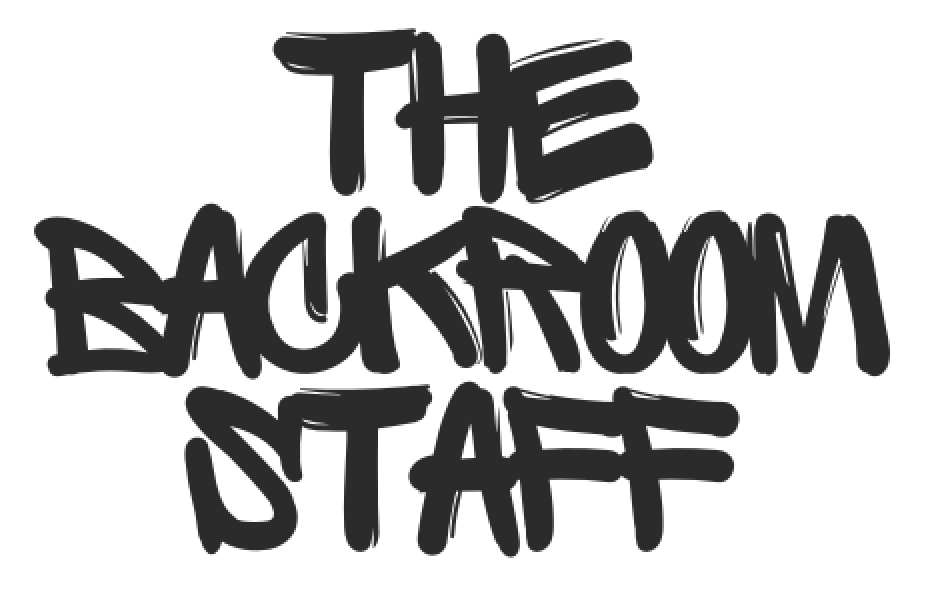Of all the staff at a football club, the chef has to be one of the most under the radar roles. You never hear about them! Yet, their work impacts everyone else - from players to staff - everyday.
In this interview, Alex Herbert shares his experiences as Luton Town head chef over 5 years - a period of constant change that included the Covid lockdowns and promotion to the Premier League.
Now, Alex has embarked on a new journey in the game and recently launched his own venture - Core Performance Prep - offering players tailored nutrition and performance cooking on a more individual basis.
The interview has been condensed and lightly edited for grammar and clarity.
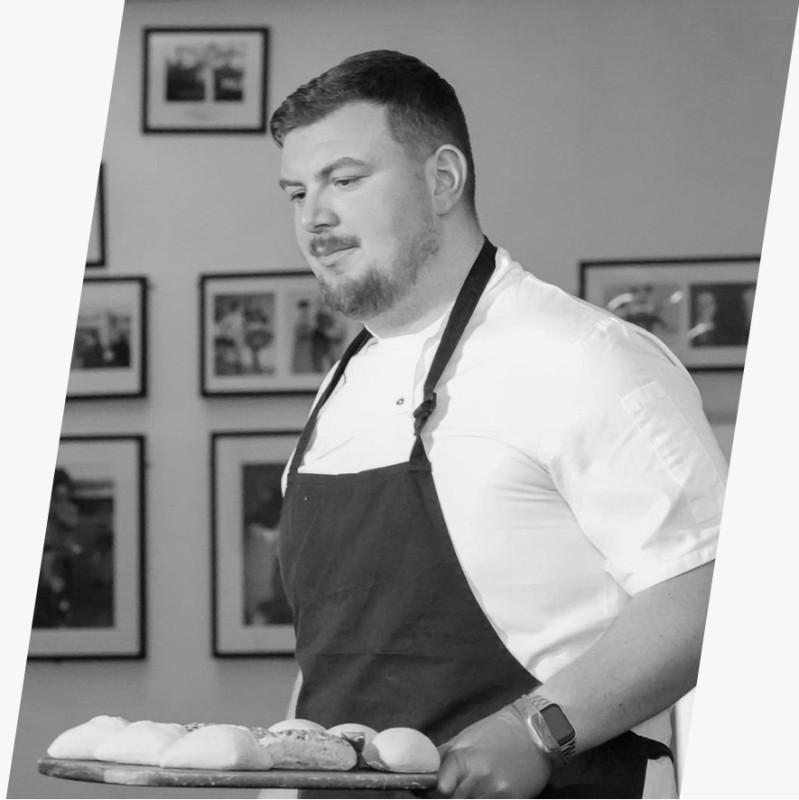
[ How did you get into cooking? ]
The way I got into cooking and sport was both completely accidental!
When I was 16, I was doing business and finance in college and working as a waiter in a restaurant. Then they said, ‘we’re a bit short in the kitchen and you get 20p more an hour’ - at the time, I thought, wow, I’d be crazy not to!
So, I started helping out there, and the more I did it, the more I started to really enjoy the different parts of it. You’re using that creative side of things, you’re planning how it’s going to look, how the person eating will experience it and how I can make this more interesting and exciting. Something in me really enjoyed it, but at the same time, I never thought I was going to be a chef - working every weekend and evenings, that sounds terrible!
Still, I was getting more into it and I started working at a business and conference center that was a more prestigious place. There were times when we had royals that would visit the restaurant, or we would cook for MPs and the vice chancellor of the university and that sort of thing. That was really cool, there’s even more of a buzz when you’re cooking for ‘high profile’ clients. They sent me to college one day a week to keep learning and getting better.
[ How did you get into football? ]
I don't know if you've heard this story. There's a guy, and a series of things happen to him. Everyone says, ‘oh that’s so bad’ and he goes, ‘maybe’ and, ‘that’s so good’ and he says, ‘maybe’. And for me, that’s pretty much my career!
At the conference center, I was overlooked for a promotion and it felt so bad. I went somewhere else but I didn’t enjoy this new job. People might say, ‘oh, that’s so bad that you’re not enjoying it’ - and maybe but there I became quite close friends with someone who went to join Luton Town. He told me good things and I ended up moving to Luton as well.
At first, I was just helping them out in one of the retail units, while I was thinking about where I was actually going to go full time next. I just worked as hard as I could, improving the food, improving the standards and just focusing on my work. A few people there were saying it’s a shame I was working in the retail side and not in hospitality.
Then one day, the club said the head chef of the stadium was not feeling well and asked if I could cover the hospitality section. Absolutely. So I started doing that and applying myself as much as I could. Then, the head chef, sort of never came back and they made me head chef around November 2019.
From there, at the start of 2020, Covid happened and while obviously everything was massively negative, in a working sense, it led to my next opportunity. Football stopped for a while and when it came back through Project Restart, some of the chefs down the training ground, who were a little bit older, were quite reluctant to come back. It was a very uncertain time.
So the club asked me if I’d be interested in doing the training ground? Absolutely!
[ Head chef at the training ground ]
Funnily enough, when I started, my main source of inspiration was actually the NFL's approach to nutrition. During Covid, while I still had a little bit of time, I watched loads of YouTube videos and tried to hoover up all the information I could about how clubs deal with nutrition. Some of these American footballers are getting 4 or 5,000 calories a day, which is no easy feat.
I was learning about how they sort of ‘manipulate’ the dishes and menus on a day to day basis. For example, closer to a match, we’re taking in more beetroots because it allows more oxygen in our blood - things like that just really clicked for me. I love looking at functional foods and making sure I put the ‘building blocks’ together just right.
There’s a lot to the role that isn’t written down on paper like a job description, there are other skills to it as well. Of course, you’re there to provide the best quality food to get them in the best shape they can, but the longer you’re in sport in this sort of capacity, you learn that you are an important social presence as well.
You’re not a coach or a sports science guy, you can have a different type of conversation with the players and the staff. You can have conversations with people that aren't just about football or have a laugh and a joke with someone. By breaking down these barriers and being easy to talk to, you give the players space and time to reset. As a player, you’re taking in information ¾ of your day from coaches, staff, analysis, physios, everything. Here, you don’t need to think about it, all you need to do is eat my food and then let’s have a chat, let’s talk about something else.
That’s the environment I like to encourage. When I started, we didn't have a mandatory pre-match meal, but then we noticed that the guys coming in for the pre-match meal were performing better than the guys who were doing their own thing. So we made it mandatory, and made it - and I hate this word but - ‘vibey’ with some music and a nice way for the lads to come in, eat the correct food and get fully prepared for the game and it worked really well.
"you’re there to provide the best quality food to get them in the best shape they can, but the longer you’re in sport in this sort of capacity, you learn that you are an important social presence as well"
[ In these roles - at the stadium and at the training ground - what meals are you responsible for? ]
Both are different, and by accident or luck, and sort of through the growth of the club, I ended up overseeing both the stadium and the training ground.
On the stadium side, you’re mainly dealing with your hospitality clients, which is a massive part of sport nowadays. Even if we might not like to admit it, football is a business and you need to perform financially, so it’s a very important side of the club.
I’d be responsible for 4 or 5 lounges, the boardroom - where there were very important guests for the club, we’d feed the stadium staff and a post-match meal for the players as well.
At the training ground, we'd be responsible for the first team, the U21s and the U18s as well as all the staff. That’s another thing I got from American football - when it comes to that training ground environment, we’ve made the decision, we feed everyone. We don’t treat you differently if you’re an athlete or staff. We’re all here in high performing jobs, everyone is important and working towards the same goal. I know some clubs will focus on the players and save money on the staff but it doesn’t work, you’re in it together and the staff are a very important part of it.
This is especially important around the Christmas schedule when you probably have 7 or 8 games in a month and you’ve missed Christmas, Boxing Day and New Year’s - it takes a toll on you, not just physically but emotionally. So the idea is to make everyone feel included, part of one team together - that’s how I always saw it from a cooking point of view.
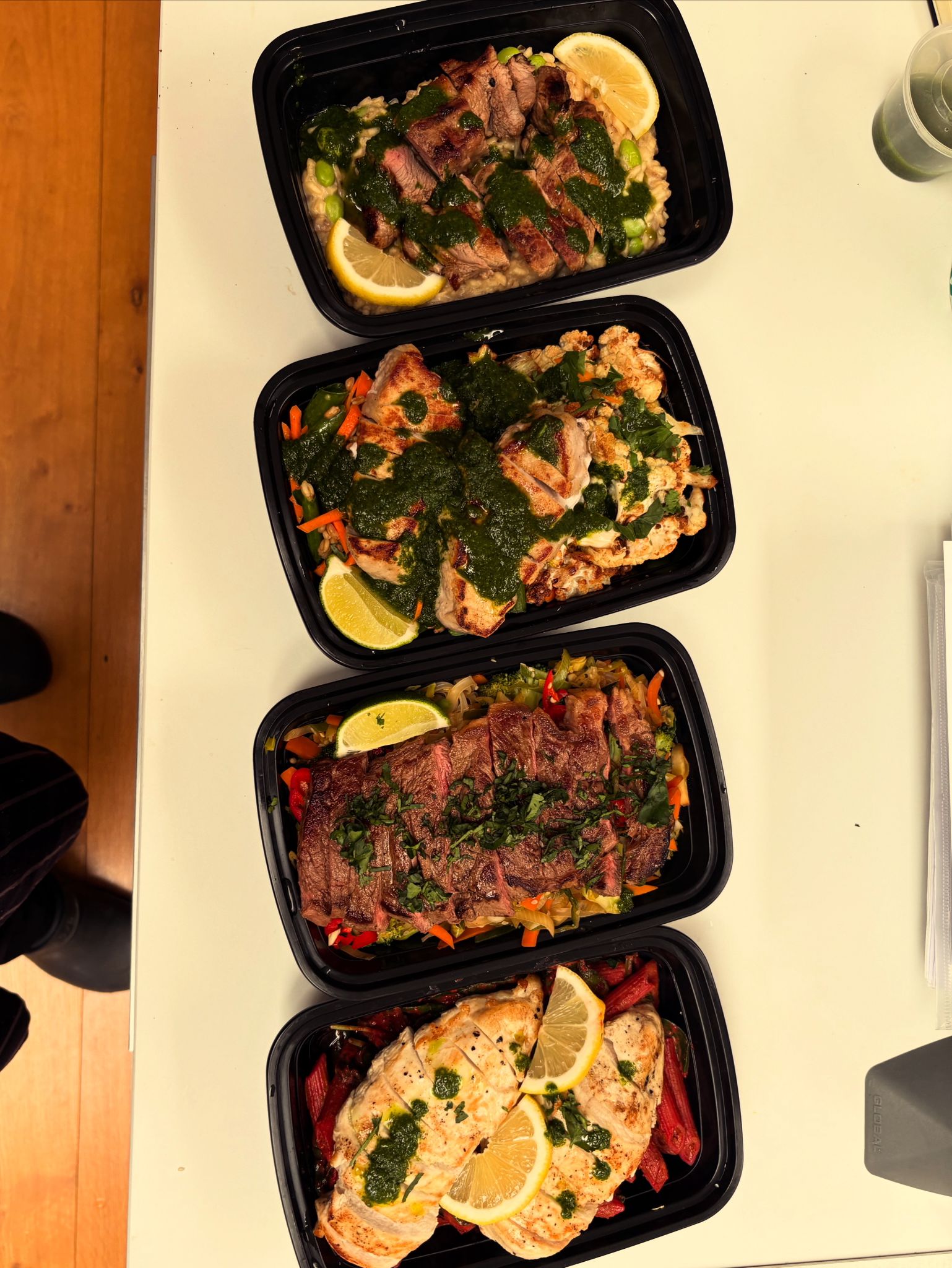
[ Is it a canteen style or more individualized? ]
It's interesting how things developed over time. We started with just a canteen, where we’d have a big hot section with the lights on it and basically buffet style. I would watch the interactions and the way things flowed and wasn’t satisfied. If you’re ever in a hotel, the food in the buffet can look fantastic but everyone wants to go to the live station!
So, eventually, we got a purpose made live station installed. If people are in a rush, there’s still stuff from the buffet, but the live station gives us two great things. First, the interaction with the players and second, we can really tailor the food to them by asking how they’re feeling, how hard they worked and so on.
We also tailor the food based on the upcoming match, for example, if it’s ‘match day minus one’ or pre-match the morning before an early kickoff. For an early kick off at half 12, we go through loads of pancakes and variations of pancakes! We’ll make white rice pancakes, oat pancakes, banana pancakes and all sorts of things to keep things interesting and exciting for the players.
We even started making homemade Nutella. Like I said, I like to manipulate ingredients! If we start looking at Nutella, everyone’s like, ‘it’s terrible, it’s bad for you’. But if you break down the ingredients, you’ve got cacao - great for anti-inflammatory properties, you’ve got hazelnuts - with protein and good fat. Then, taking these two core ingredients, and instead of all the sugar and fat, we’ve added dates - which are very high in carbohydrates. For matchday, we create a date puree and mix it with the hazelnuts and cacao and we’ve created something functional and practical from something that was a ‘luxury’ or a ‘cheat’.
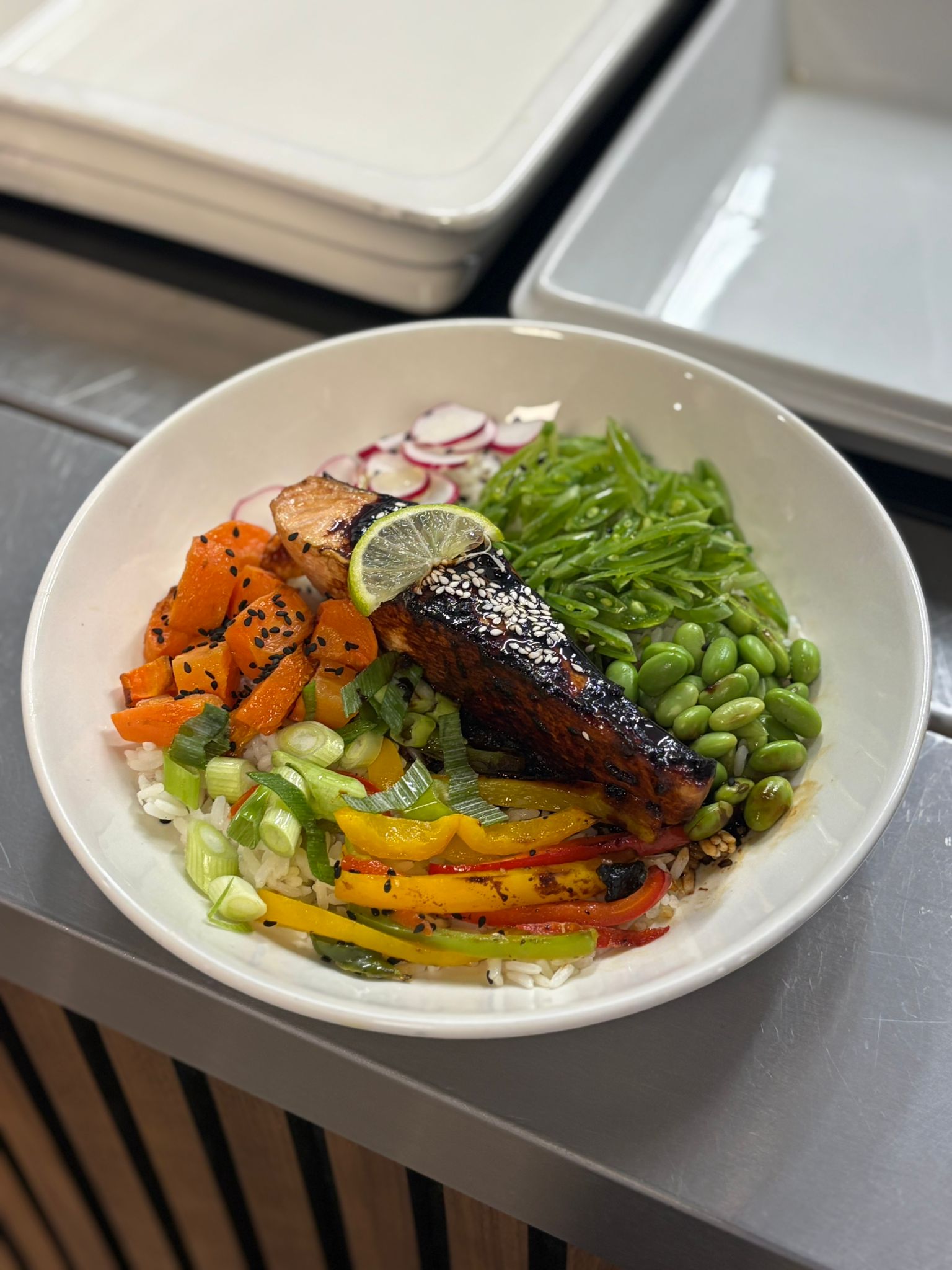
[ Are you going on the away trips as well? ]
At the start, we wouldn't, there was a point where we would send the meals for one of the sports scientists or whoever to heat up on the coach.
But there was a point where we needed to ‘catch up’ to everyone else. You know, football is - to be honest, all business - about marginal gains. I became our ‘traveling chef’ and we’d have a kitchen set up on the coach and have all the meals there. Later, I brought someone in as an apprentice as well.
When we’d arrive, the chef goes straight to liaise with the hotel staff, making sure everything is set up. Generally, we’ll have some sort of live station in the hotel restaurant so that the players always have that confidence that, although we’re away, we’re keeping the environment as close to what we usually do. It’s about making them feel comfortable.
So, we’ll do the evening meal and depending on the kickoff, we might have breakfast or snacks in the morning before a pre-match meal. If it’s a 12:30 kickoff, we’re eating pasta at 9am, which is always a treat for the players!
We’ll also prepare something for after the match to eat back on the coach, because we want to get them fed as quickly as we can because it might only be 36 or 48 hours until you’re playing again.
[ Do you have to get the ‘menu’ approved from someone at the club - like a doctor or nutritionist? ]
Again, throughout my time at Luton, there was a lot of growth, very fast. We started off without a nutritionist and I worked quite closely with the head of sports science at the time.
I would share the menus and ask if they could take a look through them but it got to a point where it was like, ‘Alex, you know what you’re doing now, keep going and if needed I’ll give feedback afterwards’. In sport, it’s never personal and everyone’s busy, so I took that as a compliment.
I would say, probably about 70% of what I was doing was ‘good’. Then we had our first nutritionist come in, made some adjustments and got up to probably 90%. We got an ex-pro in who'd had problems in his own career because he didn’t have the right nutritional strategies in place. This experience and narrative helped with that final bit and we were in a very good space.
We'd collaborate on menus together. Let's say, if I did the bulk of a menu and then he would go over the finer details - like, if we’re match day plus one (the day after), let’s add some pomegranate because it’s a great anti-inflammatory. So, I would do the ‘outline’ and he would ‘colour it in’.
[ There are a lot of famous examples of managers coming in and banning certain foods - have you experienced something like this? ]
No! I’ve been very lucky with every single manager that I've worked alongside. I've had a great, great relationship with all of them. A big part of what we do involves a lot of trust - a manager needs to build relationships with the players and their coaches, of course, but also with sports science, physiotherapists, doctors, the kit man and the whole makeup of a club. Every manager I’ve worked with has had a great deal of trust in those departments and been given a certain amount of autonomy.
I've never seen a blanket ‘no ketchup’ or ‘no brown sauce’ ban, which I'm quite grateful for!
[ How do you accommodate individual players with allergies or religious restrictions (e.g. fasting) or just general preferences? ]
All of these sorts of things are always part and parcel of the modern game. We didn't have a great deal of allergies, which was great, we’ve always been lucky with that. During Ramadan - and a period of fasting - we always just try to support as much as we can. We had a player who had only just joined us, was living by himself and was fasting. We would make him things to take home that would get his protein and carb storage high and just looked after him as much as we could.
In terms of preferences, there’s so much information out there on social media - I’ve seen nutritionists want to pull their hair out when one of the players says something like, ‘I've seen this guy on TikTok, and he's shown me that cod liver oil will burn through polystyrene. So it must be bad for me.’
You’ve got people with a following on TikTok - with no credentials - who come up with very convincing arguments for or against certain things. Ultimately, you have that individuality - what works for one person might not make any sense for someone else - usually, my opinion is we should follow the science.
[ How does grocery shopping work in a football club? ]
We’ll have our trusted suppliers. It’s interesting going from what I used to do in a club setting to now, in a private setting, they’re completely different processes.
With a football club, you just need big quantities of food coming in fresh all the time. It’s a wholesale type market. But we still try to get suppliers that are as close geographically to us as possible. At one point, we had a butcher who was a fan, which is great because you know he’s going to give you great service because he wants the team to do well!
We try to build these relationships because the suppliers become almost a part of your team and you really need to rely on them. I’ve had suppliers that didn’t drop anything off and when you call, they say, ‘we can give you a credit note’ - what do you want me to do, cut up a credit note and serve it to the players? So, we need people we can trust and rely on to get the food in.
Now that I’m working with more individual clients, it’s very hard to do this on a bulk scale. I work with organic produce, meats, free range and the best types of farming as much as possible. Because I need a much smaller quantity, I’m looking for suppliers that will give me the freshest organic ingredients. In a team setting, the budget would be unbelievable - we’re going through 20 kilos of chicken and 180 eggs a day, that adds up!
But now, I’m working with a local butcher, I know where the meat comes from, I try to get all the veg as close as I can to where I am and as seasonal as I can. That’s partly down to - the closer it is, the quicker it gets to me and the less nutrients we’re losing along the way.
"We try to build these relationships because the suppliers become almost a part of your team and you really need to rely on them"
[ Do you have a kind of performance review? Are there metrics by which your performance is ‘assessed’? ]
To be fair, it's easier to quantify than you'd imagine!
Your first metric of success is how many players are eating with us. We got to 100% of the players, so that’s a measure of success.
Then, you look at the condition of the club. This is where myself and sports science will cross over a little bit. If a player is carrying some body fat, how much of that is coming through poor nutrition? You’ve got measures like skin folds and things like that. We’ll look at the state of the squad in that sense.
Something that’s not particularly easy to quantify - and you’ll need a big sample for this - but we’ve done a lot of work around gut health and immunity boosters throughout the year, and especially over the winter periods. Looking at how many days we missed due to illness and things like that.
Of course, once you have these numbers, it’s difficult to say how much is down to food vs how much is down to the physiotherapy or the work out on the pitch. That’s not easy to unpick but you’ve got to remember that there’s a whole collective going towards the same goal - and I know you’ll always have a certain amount of placebo effect for some people!
[ Can you tell me about your decision to leave Luton and start your own project working with individual players? ]
I’ve left Luton now and when I look back - everything’s the ‘maybe theory’ again - everyone’s like, ‘oh, that’s so great that you’ve started off by yourself’ and again, maybe! Let’s see how it goes. Obviously, the club did go down this year but my decision had nothing to do with that at all. I’ve been keen on this for a while.
I want to be part of the support for individual players. What I’d love to happen is work with a player who’s maybe in and around the team but not quite first choice and be that extra level of support and help them with the best fuel and preparation and get them to the best of their ability and break through and be that first team player. Or, work with a player that’s struggling with injuries - because it’s much more common than people think that choosing the correct foods and getting the right nutrition can have a massive impact and give them that extra percentage they need in their career.
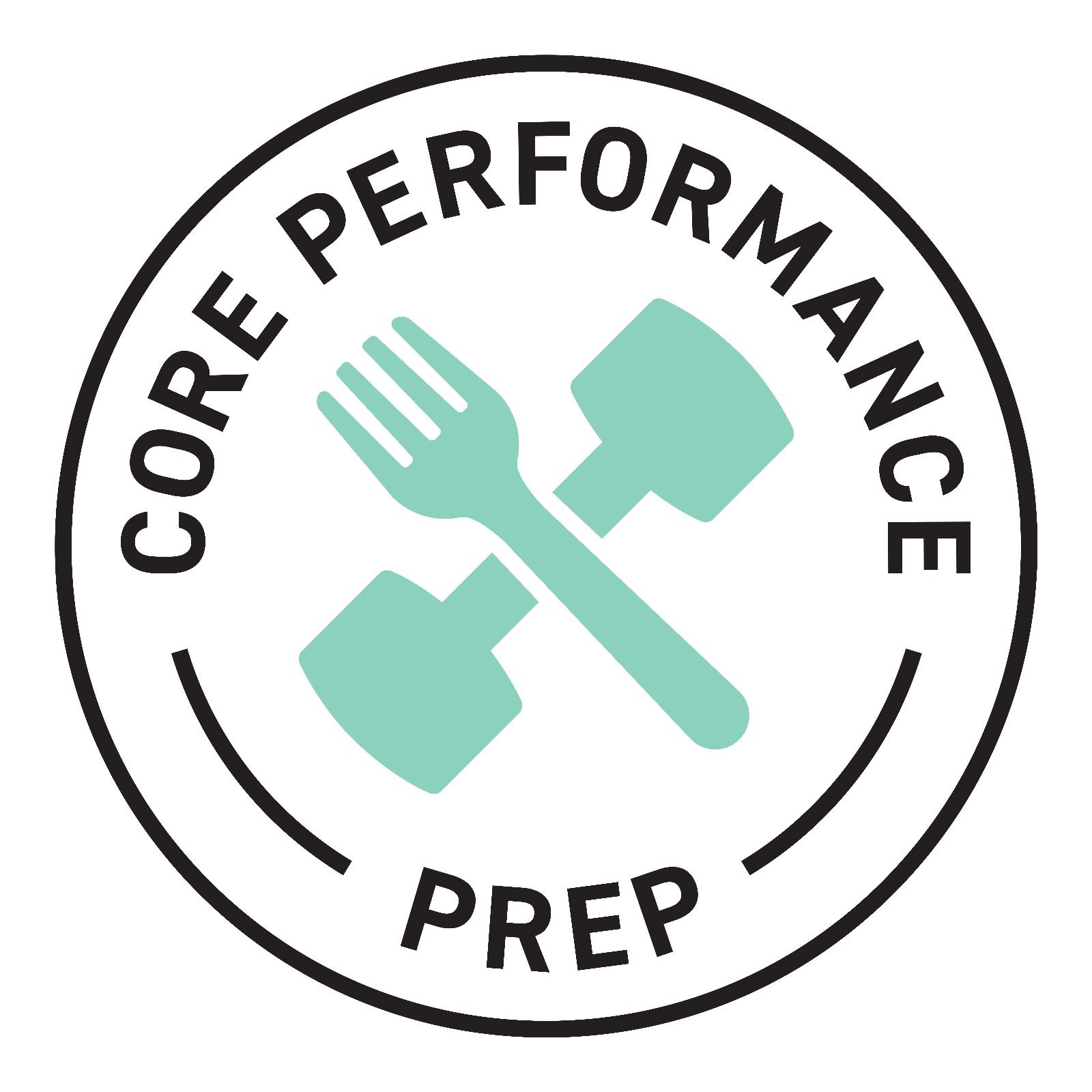
[ How do you go about finding players/clients? ]
It’s been an interesting journey so far. I’ve of course made some connections from my job, but it’s been interesting setting up in a transfer window because you can be working with someone and all of a sudden, they’re moving across the country!
I’ve still only just started. I left Luton at the end of May and thought, because of the season break, I’d have the whole of June to relax a little bit, get set up and ready for the season. But a couple of guys found out I’d left and what I was doing, so I started working right away in June - which was great - it’s great to have people coming to me but there are two sides to it. You’ve got the ‘on the job’ side, where you’re at a client’s house cooking but then you've also got the business side.
When you’re a one man band, you’ve got to make your websites, your brand - I worked with a fantastic brand company that helped me sort everything. It’s great to have that kind of support to get started because I’m a chef first and foremost - when it comes to graphic design and everything, it’s a little out of my league!
[ What is the range of services you’re offering - is it mostly meal planning or meal prep type stuff or also individual meals? ]
If you're at the top of the pyramid in the Premier League, and you're on very good money, you'll probably have your chef who’ll work with you 5 days a week and prepare all your meals for you. It’s expensive - I’m not saying it’s not good value, though, because if you get an extra year out of your career, one year of a private chef’s salary is probably nothing - but it’s obviously not accessible for everyone.
What I try to do is, instead of working with one client, I’m selling increments of time rather than whole days. For example, I might come in on Monday and prepare 3 days’ worth of meals, maybe snacks, maybe juices and then you’re set until Thursday and I’ll come again and prepare another 3 days of meals leading into a game.
So, rather than one client, I could fit in 3 or potentially 4 in a day, depending on the demands and distances. I’m still adjusting to working in all these different kitchens - sometimes I’ll reach for a drawer where I’m sure something is there, but it’s the wrong kitchen!
So far, it’s been working really well. I’ll give the players the plan and the macro breakdown of the meals. For example, let’s say you’ve got a meal, a snack and a juice - then here’s your remaining macro balance for the rest of their meals and they can track it themselves.
I’m here to help the players - I had a player who asked if I could show him how he can get the rest of his macros. I’ll go through what they’re currently doing and give some tips and recipes or whatever is needed.
While I’m starting out, I’m still giving some support and cover at other football clubs as well - and even other sports. I was at a rugby club the other day, which was new to me, going from football where an 80 kilo player is ‘heavy’ to a 125 kilo rugby player - the diets, the demands are completely different. I love learning new sports and getting that knowledge.
It’s been really interesting and exciting. Every day is completely different and you learn everywhere you go - I’ve never been to a place where I haven’t learned something.
"Every day is completely different and you learn everywhere you go"
[ You mentioned the influence from the NFL - is there a ‘gold standard’ (e.g. a club or sport) when it comes to nutrition for their athletes? ]
You've got some fantastic performance chefs out there, and I think it's been evolving over here and getting a lot more prominent. I think 20 years ago, apart from a few selected clubs, meals were just there because you’re hungry after training but we’ve obviously moved forward from that.
If I’m being completely honest, the reason I picked the NFL to study is because of the money and the budgets involved. I don’t know how that sounds - and it’s no disrespect to other sports - but unfortunately, only sports with big followings and lots of money involved with them can afford to adopt the best strategies. So, in my opinion, if you want to see what the best are doing, you have to look at what the wealthiest sports are doing. Maybe occasionally someone out there might have a new way but, unfortunately, we’re in a pounds and pence world.
